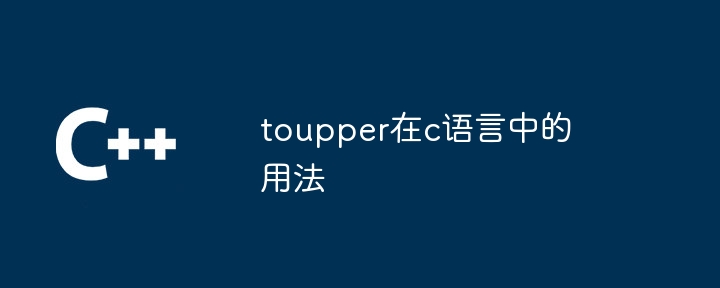toupper() 函数在 C 语言中将小写字符转换为大写。它接受一个字符作为参数,如果该字符是小写,则将其转换为大写字符并返回,否则返回该字符本身。

toupper() 函数在 C 语言中的用法
toupper() 函数是 C 标准函数库中的一个字符操作函数。它用于将小写字符转换为大写字符。
函数原型:
int toupper(int c);
参数:
立即学习“C语言免费学习笔记(深入)”;
- c:要转换的字符
返回值:

蓝科外贸网站管理系统中英文双语版v1.8是针对外贸中小企业而开发的具有简单易用、功能强大,性价比高、扩展性好,安全性高、稳定性好的系统,可以加快外贸企业网站开发的速度和减少开发的成本。让不同的用户在懂的少许html语言的基础上,就能够快速的构建一个风格个性化的而功能强大的中英文企业网站。
- 如果 c 是小写字符,则返回其对应的 ASCII 大写字符。
- 如果 c 不是小写字符,则返回 c 自身。
用法:
toupper() 函数可以以以下方式使用:
#includeint main() { char c = 'a'; int uppercase = toupper(c); printf("%c\n", uppercase); // 输出 'A' return 0; }
示例:
以下示例演示了 toupper() 函数实际使用中的情况:
char str[] = "hello world";
for (int i = 0; str[i] != '\0'; i++) {
str[i] = toupper(str[i]);
}
printf("%s\n", str); // 输出 'HELLO WORLD'在这个示例中,toupper() 函数将字符串 str 中的所有小写字符转换为大写。






























